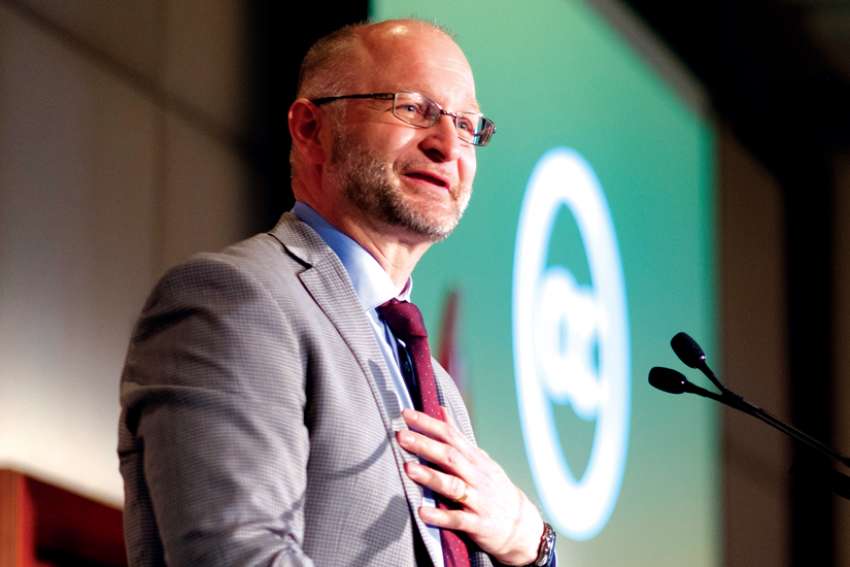On Jan. 13, the government announced that the Canadian public can have their say in fine-tuning changes to legislation that would open up assisted suicide and euthanasia to non-terminal patients. But the public has only until Jan. 27 to do so, through an online questionnaire.
These consultations are highly deceptive, designed to make the government claim, and us believe, that a broadening of medically-assisted suicide is what Canadians want. The key question in this questionnaire should be: Should medically-induced death be extended to those whose natural death is not foreseeable in the near future?
But that issue was already decided when the Trudeau government quietly chose to accept last year’s ruling by the Superior Court of Quebec that it is unconstitutional to limit assisted suicide to people close to death. By failing to appeal that ruling, changes to federal legislation became inevitable. The current Criminal Code requires that medically-assisted suicide only occur in the context of “reasonable foreseeability of natural death.”
It’s a fait accompli; the questionnaire merely asks us how far we should go. Witness one of the first questions: “In your opinion, when a person is not at a point where their natural death has become reasonably foreseeable (their emphasis), how important is it to require the following safeguards for those who meet all other eligibility criteria for MAiD?”
The questionnaire asks for input on the importance of maintaining current requirements, including:
- the 10-day reflection period;
- mandatory psychological or psychiatric assessment to evaluate the person’s capacity to consent to receiving a medical death;
- making sure the person requesting a medical death is aware of the means available to potentially relieve their suffering, including health and social support services (counselling, disability support, palliative care, etc.);
- an obligation for the physician and nurse practitioner to offer to discuss their patient’s situation with their family members or loved ones with the patient’s consent.
The questionnaire also seeks Canadians’ opinions on how to proceed in several scenarios where a person has requested a medical death in advance but is not able to consent at the time of the procedure.
The questionnaire’s timing and tight, two-week consultation deadline are deeply troubling. The federal government has until March 11 to change legislation to comply with the Superior Court of Quebec’s ruling.
“While this ruling only applies in the province of Quebec, the Government of Canada has accepted the ruling and has committed to leading an immediate and inclusive process to work with provinces and territories to respond to the recent court ruling regarding the medical assistance in dying framework,” says a Jan. 13 Department of Justice news release.
Quebec’s ruling occurred on Sept. 11 last year. Even taking the federal election into account, the questionnaire could have been launched at least a month earlier. Two weeks is a very short time for a large number of people to provide thoughtful responses.
It’s also a way to sneak in some big changes so that these are also a fait accompli when the major review of the legislation and palliative care takes place this summer. The summer parliamentary review is expected to look at further expansions of medically-assisted suicide to “mature minors,” people suffering from mental illness and those who wish to request medically-assisted suicide in advance, among other changes.
“We recognize that we need to take more steps to move forward as a society. We recognized that court cases would come in, that people would be evolving as a society and that’s what we’ve responded to,” Trudeau told reporters last October in the lead-up to the elections.
But issues of life and death should not be determined by societal evolution or opinions coming from questionnaires.
Life in all of its manifestations is sacred because it comes from God. We don’t own our own bodies and it’s not up to us to determine when our lives will end. Life has meaning and purpose for us all, including those who are suffering and their caregivers and loved ones.
Pope Francis calls medically-assisted suicide “a sin against the Creator.” In a 2017 letter, he urges us not to “step back from the patient… we can and must always care for the living, without ourselves shortening their life.”
“This approach is reflected in palliative care, which is proving most important in our culture, as it opposes what makes death most terrifying and unwelcome — pain and loneliness,” he wrote.
(Majtenyi is a public relations officer who specializes in research communications at an Ontario university.)


